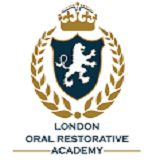
Anka Letic
Professor of Oral Medicine
University of Milan
Italy
Biography
Anka Letic has completed her PhD at University of Belgrade, Serbia and Post-doctoral studies at Hammersmith Hospital, London, England. She worked as University Professor in Belgrade, Serbia, Fukuoka, Japan and Ras Al Khaimah. She has published five books and more than 45 papers in reputed journals and has been serving as an Editorial Board Member of repute journals. Her research interest includes “Synthetic bone substitutes for guided bone regenerationâ€. She is a Scientific Expert for European Commission in Horizon 2020 and Eurostar programs. Presently, she works as Dental Clinicians at International Dental Clinics in Rome and Milan, Italy.
Research Interest
The oral rehabilitation treatment aims to return esthetics, function, comfort, phonetics and health to the patient. Oral treatment requires careful planning, according to the biological and mechanical principles that rule contemporary dentistry. Complex clinical cases of oral rehabilitation require interdisciplinary treatment with the need for orthodontic treatment, endodontics, implants and prosthetics. This work describes multidisciplinary clinical cases of oral rehabilitation involving orthodontics, endodontics, periodontics, surgery, implant insertion and aesthetic restorative dentistry, with an implant-supported prosthesis approach. Therefore, it is crucial to gather the greatest quantity of data to determine the role that every single element can play in the prosthetic rehabilitation of the clinical case. Dental implants have been established as long-term supports for tooth replacements, and they have profoundly altered treatment concepts of traditional prosthodontics. The purpose of this lecture is to appraise tooth preservation in a different manner while considering implants as additional and even preferred support mechanisms for dental prostheses. Dental health situation can be associated with negative child and family experiences and lower oral health-related quality of life (OHRQoL) across all social groups; yet, families facing greater disadvantage may report lesser quality-of-life impact at the same level of disease experience. Thus, subjective quality-of-life measures may differ under varying social contexts, with possible implications for service utilization, evaluating oral health interventions, or quantifying disease morbidity in low socioeconomic status groups. This has implications in the support for partial or complete removable prostheses and the placement of dental implants.

